Aquafaba meringue nests, perfect for filling with vegan cream and fresh berries. These nests can also be crushed to make Eton Mess!
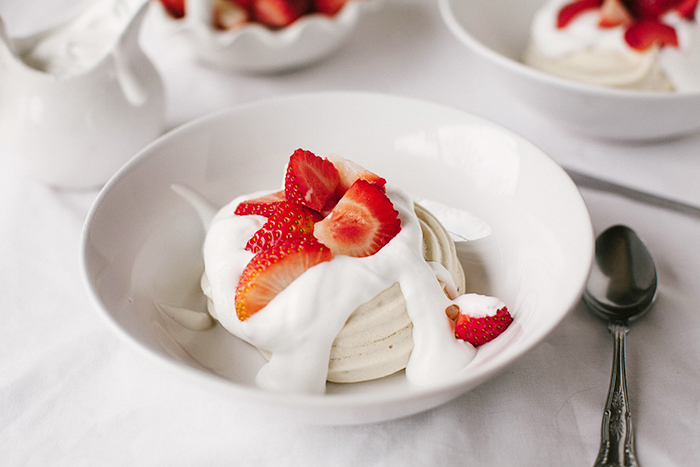
Many of you will already have heard about this, but for those that haven't... I recently discovered that you can actually make vegan meringue from chickpea brine (the water from a can of chickpeas or other legume) and sugar!!
I know, right??
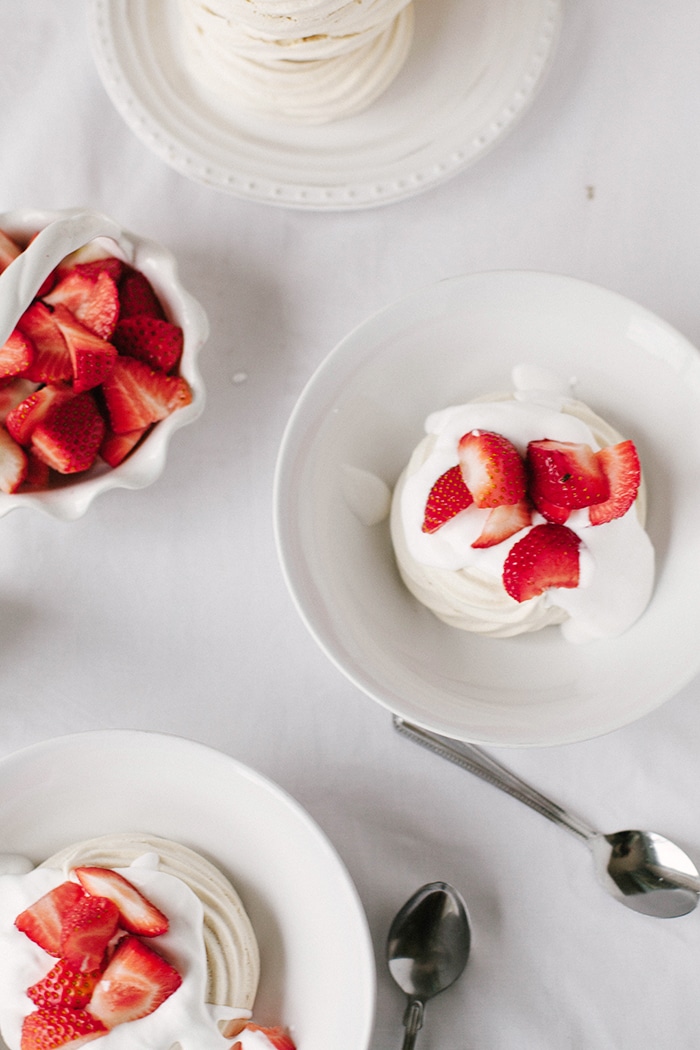
After hearing about other's experiments with this discovery online, I had to try making one of my favourite desserts ASAP - Meringue nests with strawberries and cream. I am so happy and amazed with the results!
They're crunchy, chewy, sweet and delicious. Just like egg meringues but better for the environment!
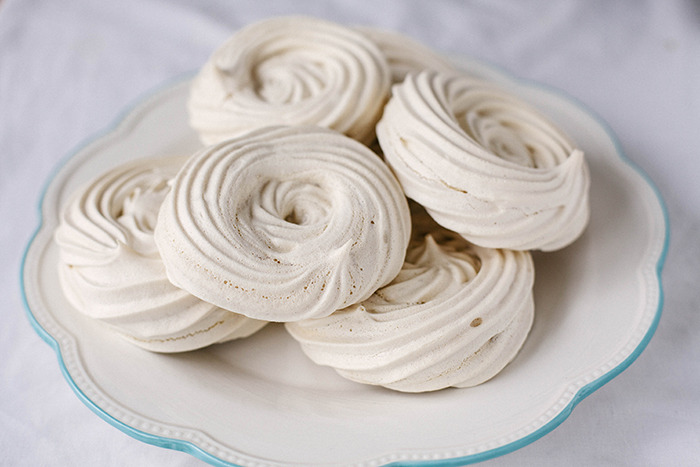
Making these meringues are really no different than if you were to use eggs. The process is the same.
Simply whisk the chickpea water, slowly add sugar until it reaches the "stiff peaks" stage, pipe into nests, bake on a low heat for a couple of hours and cool.
You may be wondering... "Doesn't it taste like chickpea water?" and the answer is it just tastes like sugar, in the same way egg meringues just taste like sugar. It's all about the texture.
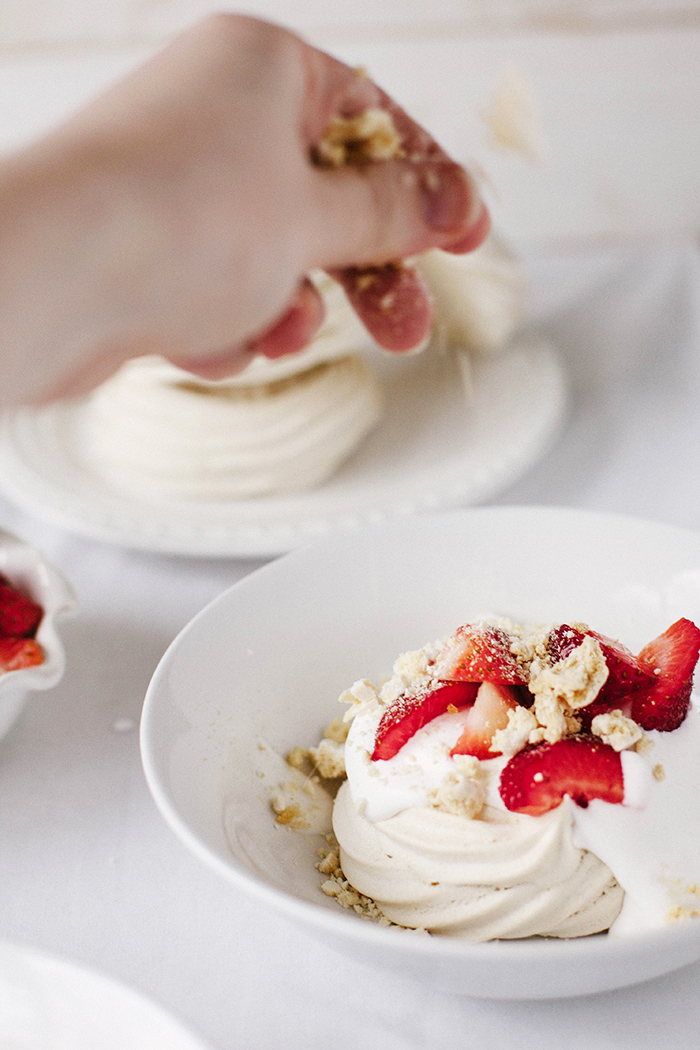
I can't wait to try making Pavolvas, Eton mess (which is pretty close to what I've made here), angel food cake, macarons and more, now I've discovered this idea.
Never throwing away that canned legume water again...
You could get away with this being an Easter-themed dessert because of the whole nest aspect. But really, it's good any time of year. Any time of day. Every day.
These meringues are:
- Vegan
- Eggless
- Dairy-free
- Gluten-free & grain-free
- Soy-free
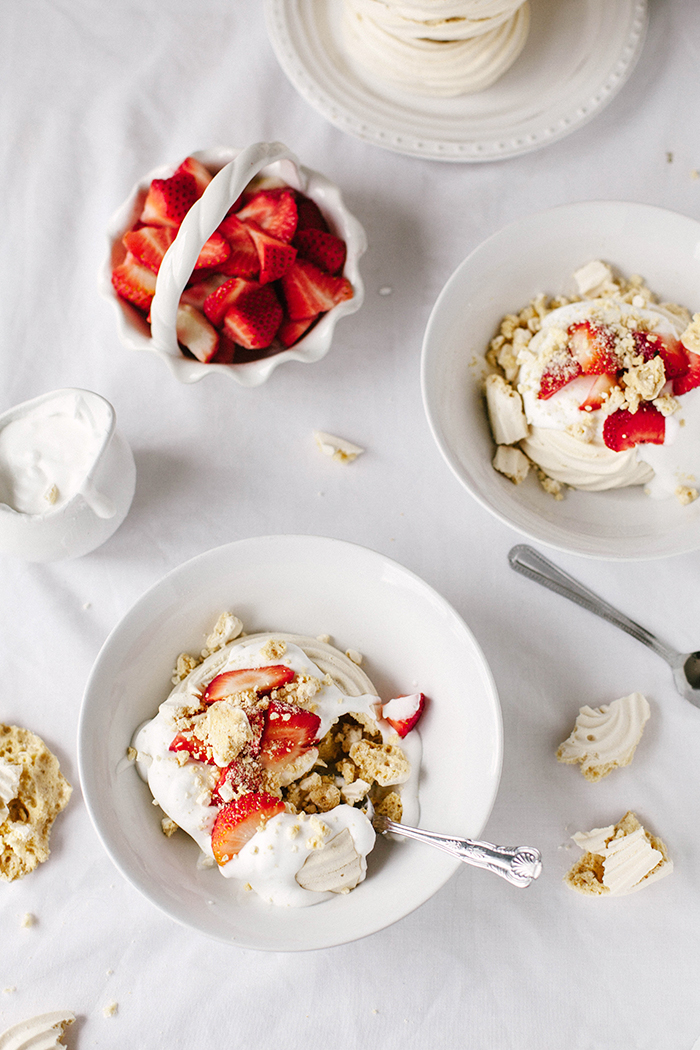
More Aquafaba recipes
📖 Recipe
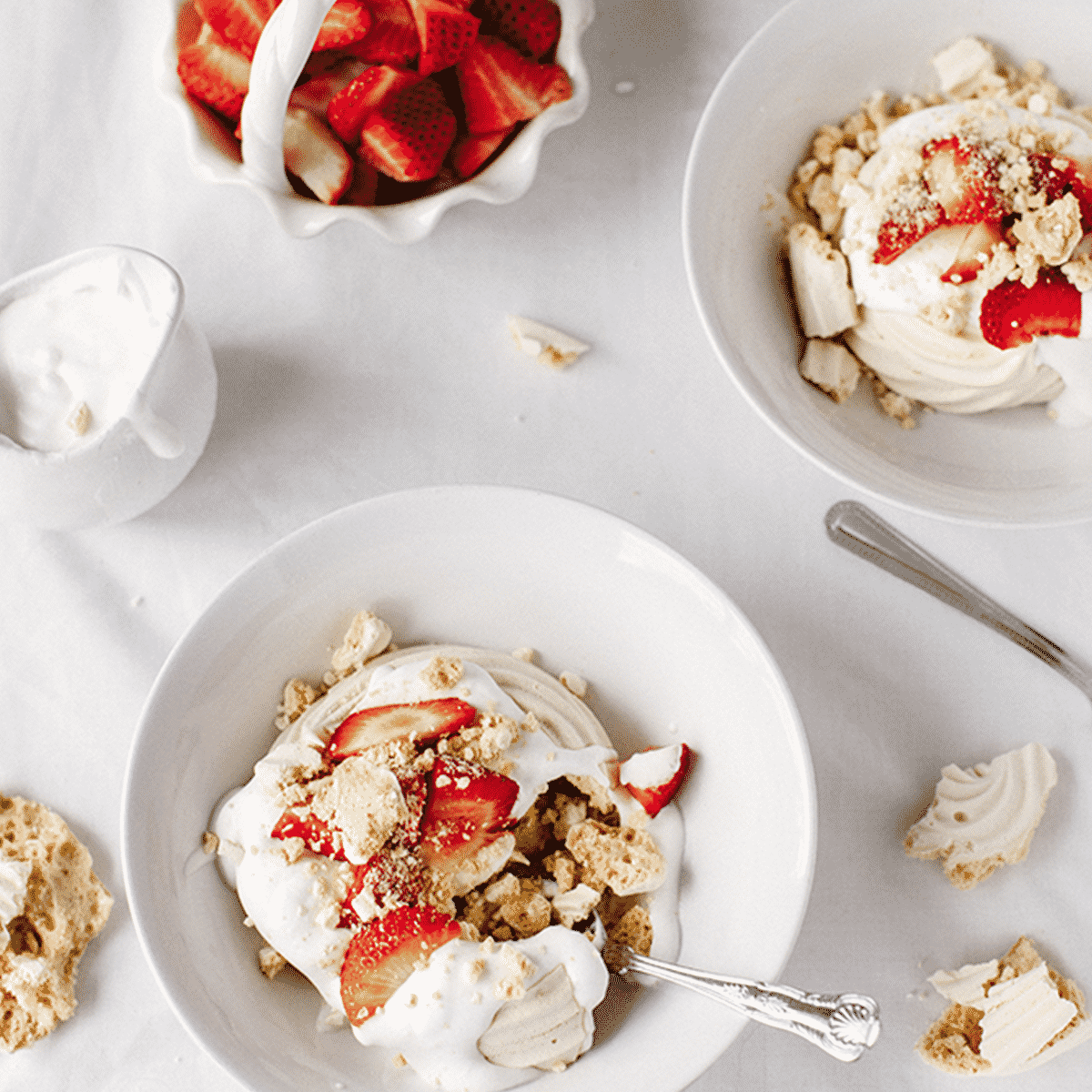
Vegan Meringue Nests
Egg-less meringue nests served with strawberries and coconut cream
Ingredients
- 400 g can of chickpeas - just the liquid from the tin, or other canned legume*
- ½ tsp cream of tartar
- 125 g icing sugar
- ½ tsp vanilla extract, (optional)
To serve
- Fresh strawberries
- Chilled full-fat coconut milk
- Maple syrup or agave nectar
Instructions
- Preheat the oven to 110c / fan 90c / 230f and line a baking tray with greaseproof paper.
- Add the water drained from the can of chickpeas into a large bowl and use an electric hand-held or stand mixer to whisk for approximately 5 minutes until it's more than doubled in size, white and foamy.
- Add the cream of tartar and whisk again for another minute. Slowly and gently start adding in the sugar, whisking until the mixture forms stiff, glossy peaks. Stir in some vanilla, if using.
- Transfer the meringue mixture into a icing bag with a large star-shaped nozzle and pipe into nests or cup shapes. Alternatively, just use a spoon to create mounds and use the back of the spoon to hollow out the centre.
- Bake for 2 hours. Do NOT open the oven! After 2 hours, turn the oven off and leave them to cool in the oven for at least another hour.
- To serve, add a meringue nest to a bowl and whip some chilled coconut milk with some agave nectar (to taste) to create a thick double cream consistency. Pour onto the meringue nest and serve with chopped strawberries on top. Enjoy!
- These meringues should keep for a couple of weeks in an air-tight container (I will report back if not). They can also be frozen.
Notes
*Make sure it's not the "salted water" variety - otherwise you'll end up with salty meringues!


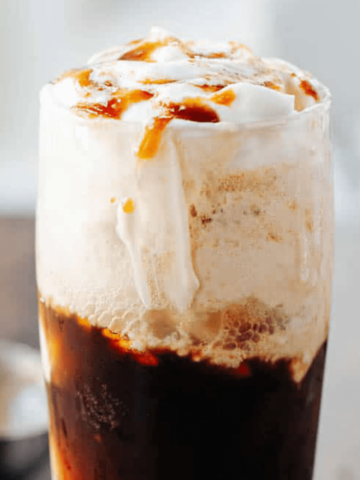
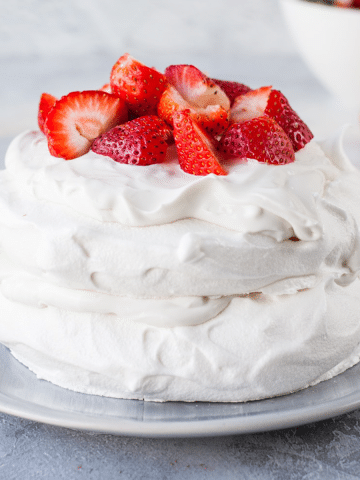
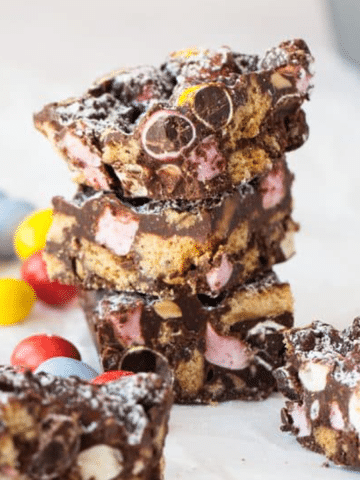
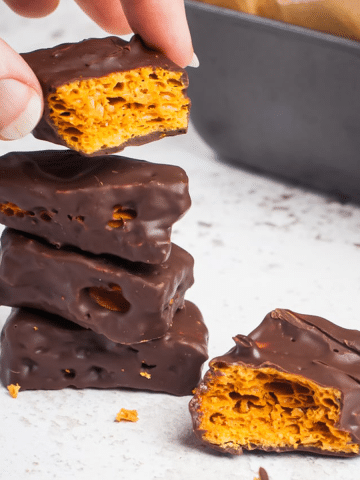
Kirie says
Hi! I wanted to drop in and just say that I tried your recipe. (: I am an omnivore, but my best friend is a vegan. When she was also an omnivore, she loved it when I made Eton mess with peaches. She has missed it since, so I was really excited to give your recipe a try! They turned out great, and I tried one to see how it tasted. Not exactly like an egg meringue in flavor, but it was still so good that I stole a second one. Hehe. My husband also tried a bite and said he was amazed at how the texture is pretty much exactly the same as an egg meringue.
Anywyas, I have a few notes for anyone having difficulty with these:
The same rules for egg meringues apply to chickpea meringues. You need to beat them on medium speed, not high speed. If you beat them on high, your batter will not puff up or get to stiff peaks and they will be runny. The bowl and beaters need to be super clean and dry, no water or oil or anything. It takes a while for the batter to get to stiff peaks. It took me about 15-20 mins. If you want less dry meringues, you can try cooking them for an hour or an hour and a half instead of 2. You still need to let them cool off in the oven with the temp off though. And like she said, don't open the oven at all!
KT says
I just tried this, following the recipe exactly, and it didn't work :(
I just couldn't get the right consistency, despite whisking it for ages. What could I have done wrong?
(I don't use Facebook so I can't check there for tips, sorry!)
Ruby says
Hello, I just tried your recipe. They puffed up nicely in the oven but completely deflated when it was cooling. They are crispy outside but so dry and crystallised inside. Are they supposed to be like that? Is there a way to make them soft and chewy inside?
Freya says
Hi! Great post! I've just been experimenting with a chickpea base but for macarons - unfortunately it turned into a bit of a disaster! I hope you have more luck with it as I'd love a good vegan macaron recipe!
Stacey says
Hello,
I do not understand your point about how these are better for the environment than egg meringues. Can you explain? Thank you,
Stacey
Lucia says
I know you asked this quite a while ago but I thought I'd answer! Vegan foods are in general is far, far more environmentally friendly than animal products. Although eggs are 'greener' than a lot of other animal products (meat being the worst offender), they're still not particularly eco friendly.
Think about the way an egg is produced. There are billions of eggs produced by chickens every year. Those chickens end up using quite a lot of resources: food, water, space, energy to heat that space, and so on. Although chickens use fewer resources than cows/pigs/other animals reared for meat, it's still a substantial amount. Therefore if you compare the energy and resources used in a plant-based/vegan recipe compared to non-vegan ones, there's a difference.
The last thing I'll say is that eggs are also unethical. You'd think that nothing would be killed in the process - however, billions of 'useless' male chicks are killed by the egg industry (since they can't lay eggs).
If you're interested in veganism - especially the environmental impact of meat vs plant based diets - there are loads of documentaries out there that you can watch. I've heard that Cowspiracy is really good!